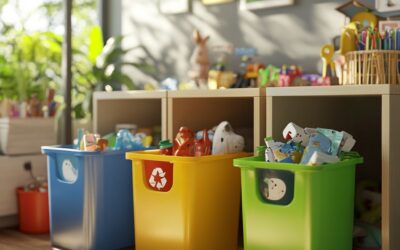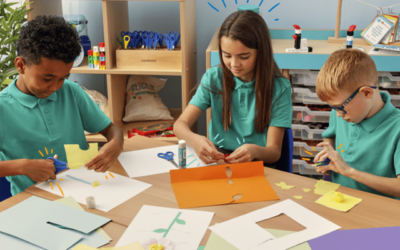Bridging the gap: the importance of play
Some children as young as 2 or 3 years-old can find ease with learning language skills, others struggle. Children of this age can also find focus and show attention, while some are more difficult to control and settle. Anyone who has experienced an early years setting can see the gap between these traits clearly. ‘Bridging the gap’ is something that educators and politicians talk about regularly, but to tackle it we need a hands-on approach.
Importance of play
There is always a strong value placed on the importance of play within early years, it is a valuable tool in all children’s learning journeys. We know through study that this is how young children learn best. Socialising, teamwork, improving language and confidence, creativity and curiosity are just a short list of the lessons learned from play. When this is successful, children are much more prepared for a primary learning environment.
Teachers of older students though, sometimes parents too, can struggle to come to terms with how this system works. Surely an attentive class given clear instruction and exercise should learn better? Wouldn’t that help to bridge the gap if taught from a young age?
How we learn
We have to take a look at the children around us and a number of studies to answer the questions above. Look at our own children or the children of our friends and families. How do they gain their vocabulary, social skills and curiosity? Playful interactions. Between friends and with adults, these interactions are the key to learning valuable lessons which will help the transition to primary school.
A quick Google search can show the number of studies exploring the effects of ‘play deprivation’. Most of them lead to similar conclusions; that removing the opportunity for play in childhood is more likely to result in a decreased ability to learn in the early and primary years.
Everyone plays a part in bridging the gap
You can see from watching young children at play, the level of thinking and learning which is taking place. Practitioners have a huge role in this development, they can provide the right resources whilst keeping early learners comfortable and safe. This leads to an environment where children can happily express themselves. These points also apply for the parents too, at home, giving their children the tools to explore and understand the world around them. The communication and relationship between nursery and parent should be nurtured as it is with the child.
Bridging the gap between nursery and primary school is not a quick, easy fix. With continued commitment to play with added learning outcomes, numeracy and literacy skills will naturally improve and ready children for the step up to primary.
Related blogs
What Goes In, Must Go Out
Creating a Circular Economy in Your Nursery Author: Nick Corlett Sustainability Manager at LEYF Sustainability is more than a trend—it’s a shared responsibility, and the nursery is the perfect place to nurture these skills. Every day...
Top tips to create a SEND-Friendly Primary School Classroom
Author Lindsay Robinson Lindsay Robinson has been a primary school teacher for 23 years and is passionate about achieving the very best outcomes for children through quality first teaching and experiences. I remember receiving very little guidance during my teacher...
Celebrating being part of a Global Community
Author: Alice Sharp As a young teacher I can remember how much time and effort went into looking at the SHAP Calender. This is a calendar of festivals around the world. We had to try and ensure we celebrated anything relevant but also introduce other festivals from...


